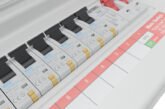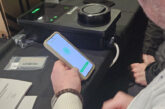
Daniel Forsberg, Marketing Manager for EVSE at CTEK, addresses the need for smarter messaging to help boost smart EV charging.
According to a UK government commissioned study, what smart charging is and what it can do are still not widely understood. The report – Electric Vehicle smart charging: consumer research – recommends communicating how smart charging works and the benefits of individual lower electricity bills and the collective contribution to the nation’s grid management and greener energy.
A group effort
The research behind the report, by the Energy Saving Trust, examined the current evidence base and interviewed 30 current and prospective EV drivers and fleet managers before six focus groups explored what the best messaging could be.
The Trust defines smart charging as charging EVs when electricity demand is lower or when there is more supply than demand. Smart charging can be achieved by pre-setting an EV to charge overnight, for instance, or with the time of charging controlled by an App or by ceding control to the energy provider.
The study found existing EV owners who charge at home had the best understanding of smart charging, with research suggesting 70-90% already smart charge – mostly by using cheaper overnight charging.
Smart charging was much less prevalent at the workplace, with just 12% of EV drivers who charge at work able to schedule their own charging.
Fleet managers were found to be struggling to see how smart charging might work and be beneficial for their organisations. They’re currently focussed on transitioning their fleets to electric and not on optimising how they’re charged.
When the researchers asked their subjects if they understood the various types of electricity tariffs offered by suppliers and how they might enable smart charging, there were mixed results.
Time of use tariffs, sometimes known in the UK as ‘Economy 7’, had good awareness and understanding, including the benefits of cheaper charging.
Dynamic tariffs, where the electricity price varies based on grid-wide supply and demand, didn’t have as high awareness.
Type of use tariffs, with cheaper electricity for defined uses such as EV charging, were easily understood. That said, environmental benefits are less likely with these tariffs.
It’s encouraging that participants in the study were positive about smart charging and consider it worthwhile. They can grasp the benefits of paying less for charging whilst helping the nation towards its environmental goals by making the most of renewably sourced energy at times when supply is higher than demand.
When the researchers asked their focus groups to evaluate smart charging messaging, and each group sought to improve on what their peers had previously refined in earlier meetings, ‘how it works’ was found to be an essential starting point.
Clear communication
Explaining different tariffs was found to help, whilst messages about cost savings were motivational. Communicating the savings from smart charging versus dumb was more effective than not, while combining cost saving and environmental benefits was a “win-win”.
The report concludes: ‘The main misconceptions around smart charging stemmed from lack of understanding of the principles and technology, leading participants to worry about the effort involved and the reliability of smart charging. As such, messages highlighting ease and convenience were well received.’
That is a challenge and an opportunity for all of us in the EV ecosystem, including smart-enabled chargepoint manufacturers such as CTEK, to communicate coherently, whenever we can, what smart charging is and its clear and achievable benefits.
Read the study in full here
Browse CTEK’s range of EV charging solutions here
Find more industry feature articles here








